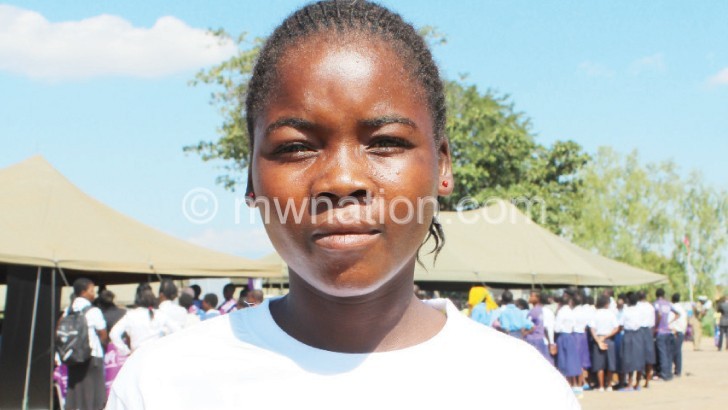Ending child marriages
Like any other girl, she has a right to go to school. But this right was violated in 2017, when a man lured her into a sexual affair. She was aged 17. It was a relationship that left her pregnant and out of school.
This is the story of Mary Master, from Mandola Village in Traditional Authority (T/A) Jenala, Phalombe District.
She was in Form One at Push Private Secondary School at Phalombe Boma when she started dating the man.
Weary of long walks to school, a 20-kilometre trip that often took almost three hours, Mary rented a house in a village near the school.

“Soon after starting Form One, a man coaxed me into marriage. He told me to stop school, saying I was just wasting my time,” she recalls.
The girl, who aspires to become a journalist and expose the agonies of girls in rural parts of the country, personifies the plight of many Malawian girls. Government and United Nations studies show almost half of girls in the country marry before their 18th birthday—the legal marriageable age.
Being young and naïve, the girl from poor background fell for the man’s advances and ended up pregnant.
“Then, the man took me to his home. I quit school and married, grudgingly though. I had started a new life now,” says Mary regretfully.
She rues “the wasted time” she spent in marriage.
“Barely a month had elapsed when her parents, together with group village head Maluwa, stormed her marital home one morning to rescue her.
“I told the man to leave Mary alone, although she was pregnant. I told him Mary would go back to school soon after giving birth,” explains Maluwa.
True to the traditional leader’s word, Mary returned to school after Yamikani’s birth.
She is now in Form Three at New Academy Private Secondary School in Phalombe.
But she still faces challenges associated with travelling a long distance to school.
Although many organisations in the country are helping girls go back to school, those learning in private institutions, such as Mary, are left out.
Phalombe is one of the districts where child marriages are high.
Maluwa has terminated 36 child marriages since 2016, he says.
“Before the coming of Centre for Alternatives for Victimised Women and Children (Cawvoc) in Phalombe, I used to go from family to family, driving out girls who were in marriages,” says Maluwa.
According to Cavwoc programmes manager Thokozani Chimasula, the organisation is supporting girls in various secondary schools to stay in school.
Poverty, culture and indifference often drive these girls into early marriages which wreck their future.
Phalombe South legislator Mary Livunza Mpanga is worried that some girls go into marriages despite securing school fees from well-wishers and organisations.
“It is very sad that 30 girls from Mpasa Community Day Secondary School, who received fees from well-wishers, ended up in marriage,” she says.
Cavwoc has rolled out initiatives in the district to prevent more girls on scholarships from going into marriage.
Says Chimasula: “We are working with male champions, mother groups and local leaders to help girls continue with their education. We are also providing bicycles to rescue girls from walking long distances to school, which forces some of them to quit school.
“Looking forward, we intend to implement sexual reproductive health [SRH] education for students.”
The campaigners are winning the battle to keep girls in school, he says.
Girls who go back to school receive bursaries and school uniforms.
Cavwoc, funded by Oxfam, has sent some of these girls to Chitekesa, Chisugulu, Khongoloni, Chiringa and Michesi community day secondary schools where they are continuing with their education after marriage.
Oxfam acting country director Lingalireni Mihowa says Malawians need to change behaviour first to end child marriages.
She reckons “the policies are all fine”, but the country’s agenda to end child marriages will be a losing battle unless people change their mindset.
“The country should engage traditional and religious leaders to end child marriages. We need chiefs to address social norms in addition to creating by-laws,” he says.
Last year, the Ministry of Education reported that many schoolgirls drop out due to lack of school fees and long distances to school.
But First Lady Gertrude Mutharika backs the calls to start confronting and terminating cultural practices that push girls to marry young.
“Some traditional values are increasing child marriages and violence against women and girls. However, education is the only sure way to end child marriages and violence against women and girls as it will empower them,” she said in an interview in Phalombe.





